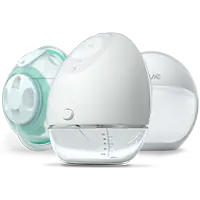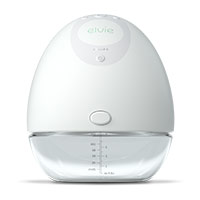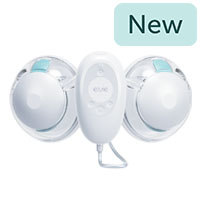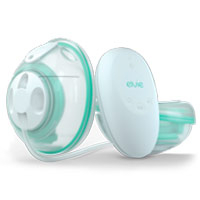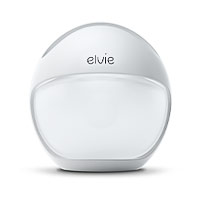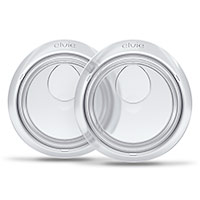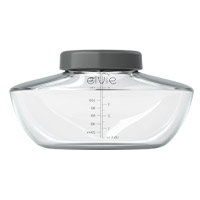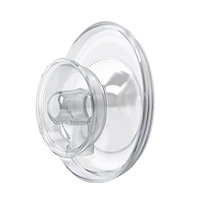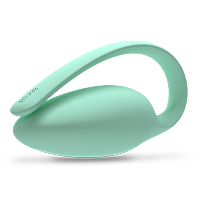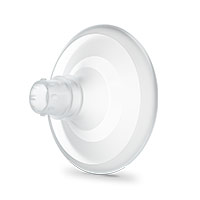In his informative and compassionate book 'The Postnatal Depletion Cure' Dr. Oscar Serrallach states: 'If a new mom isn't allowed to fully recover from the demanding requirements of pregnancy and birth, the after effects can last for years.'
Although this might sound alarming, it's actually a useful reminder of just how physically and emotionally demanding growing, birthing and caring for a child is. But often, self care for new mothers is viewed more as a luxury than as a necessity. It's easy for the daily tasks of feeding, changing, washing and nurturing others to take priority over a mothers' wellbeing.
The instruction on airplanes to 'put your own oxygen mask on before helping others' can be applied to preventing what's now being recognised as 'post-natal depletion'. Just as oxygen is essential for survival, replenishing nutrients, getting enough sleep and looking after the mental health of new mothers is essential for their present and future health and well-being.
So although most modern, western women no longer follow the traditional Chinese ritual of resting and recuperating in bed for the 40 days following childbirth, there are some principles of this age old wisdom that even the most modern of new mothers can build in to their lives.
Here's how.
Mood and well-being
The huge hormonal shifts that occur after giving birth can have a huge impact on mood, especially in the first few days after a baby is born. Low oestrogen and progesterone levels in the postnatal period can contribute to fatigue, irritability and low mood. Combined with these hormonal shifts, disturbed sleep and the demands of childcare can set the stage for some women experiencing 'baby brain', an inability to focus and increased anxiety.
On a positive note, oxytocin - the love hormone - increases when you're breastfeeding. It's also encouraged by skin to skin contact and cuddles with your baby. As well as the benefits of oxytocin for mood and a sense of wellbeing, getting enough healthy fats in your diet supports memory and cognitive function.
DHA, a type of omega 3 fat found in oily fish, is particularly concentrated in the brain. Eating two palm sized portions per week of smaller oily fish like salmon, mackerel, anchovies and sardines will help to replenish DHA stores which can become especially depleted when breastfeeding. A good quality fish oil or algae oil supplement can also boost levels.
As well as DHA, fats from avocado, nuts, seeds and olive oil are all helpful for feeding the brain, supporting hormone production and meeting increased energy needs after giving birth.
It's important that if you're experiencing persistent low mood, depressive thoughts or anything else that feels unusual for you, that you let others know and seek medical help.
Energy
The lure of coffee, chocolate, refined carbs and sweets can be over-powering when you've been up all night with your baby. But even though there's no denying they provide an instant energy boost, stimulants are no friends to feeling on a more sustained even keel.
Although it can be challenging to find time to eat with a newborn, tuning into your hunger (and thirst) cues before your body enters panic mode is vital for avoiding reaching for the instant gratification of sugar and caffeine. Keep a stash of homemade energy balls, hard boiled eggs, avocados, veg sticks and hummus in the fridge and some batch cooked soups and stews in the freezer for when hunger strikes. That way you'll always have something nourishing to hand when you really need it.
Even mild dehydration can really zap your energy. Carry water with you when you're out and about and keep jugs and glasses to hand at home. If you're still struggling to sip regularly, set an alarm on your phone to remind you to drink every hour or whenever you're feeding your baby.
It's no surprise that disturbed sleep can take its toll on your energy and mood. But there are ways to protect yourself from feeling the effects of fatigue so sharply. Building in time for restorative relaxation daily - whether it's leaving the pile of dishes and prioritising taking a nap while your baby sleeps, or going to a yoga class and making the most of the shavasana at the end - do what works for you to keep your brain from whirring.
Replenish & repair
Remember that food - as well as rest - will help to rebuild and replenish your body after pregnancy, birth and during breastfeeding.
Help your tissues to repair with plenty of good quality protein like beans, legumes, meat, poultry and fish, nuts and seeds. Foods high in zinc support a healthy immune system and also play a role in skin healing - pumpkin seeds, sesame seeds, beef , lamb and seafood are all good sources. And load up on vitamins A, C and E for immune support and antioxidant protection to help your body cope with the new demands motherhood throws at it: plenty of brightly coloured fruit and veg, including avocados, spinach, broccoli, sweet potato, butternut squash and berries plus almonds, walnuts and sunflower seeds.
Continuing with your prenatal supplement or a specific multi-vitamin and mineral formulated for breastfeeding is a good way of ensuring you're meeting your increased micro-nutrient requirements while breastfeeding.
For more nutrition and lifestyle tips and recipes from Jodie head to her website here.

